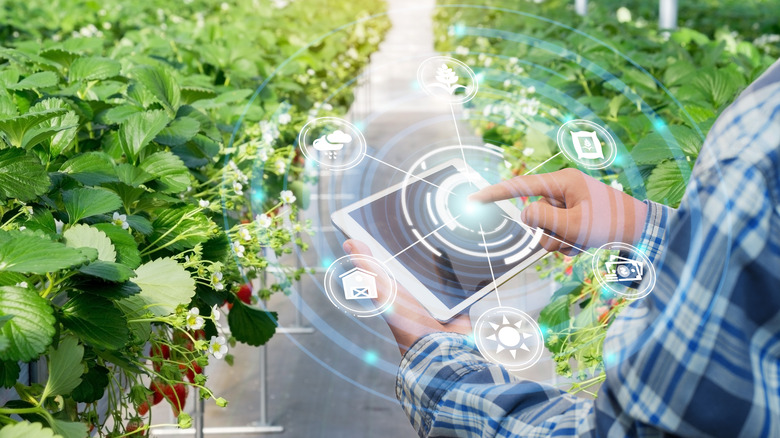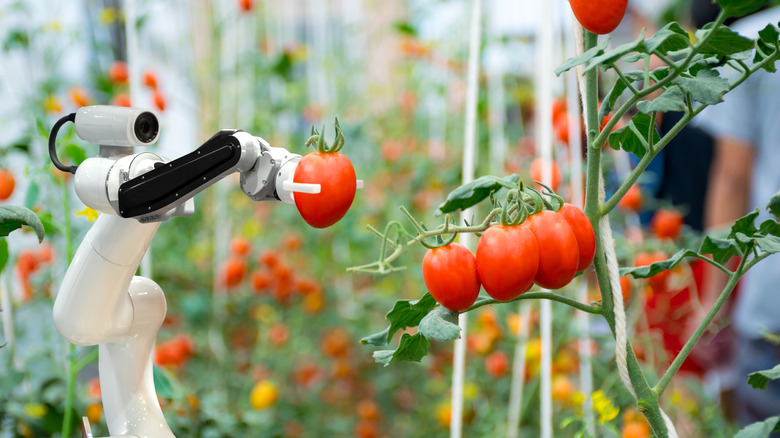The Truth About Australia's First 'Hands-Free' Farm
The farming industry has been coming under scrutiny in recent years because of the serious impact many large-scale farms have on the environment. With concerns over environmental health growing, there has been an increased effort to find ways to grow the food we need in a sustainable way. And one farm in Australia may be well on the way to doing just that. The Food Agility Co-operative Research Centre has just announced they will partner with Charles Sturt University to develop the Global Digital Farm, the world's first completely "hands-free," fully-automated farm (via Charles Sturt University).
Located on the University's Wagga Wagga campus, the $20 million, 1,900-hectare commercial farm is already producing broad acre crops that include wheat, canola, barley, as well as cattle and sheep, and even features a vineyard on site. The innovative new farm is equipped with hands-free fully autonomous machinery, including robotic tractors, harvesters, survey equipment, and drones, which harvest fruits and vegetables and monitor crops, while artificial intelligence is used to help improve decision making around sowing, dressing and harvesting. It is complete with a state-of-the-art cyber-secure environment, which helps manage and mitigate new potential food production cybersecurity risks.
The automated farm will develop environmentally sustainable models and practices
Smart sensors help monitor the levels of carbon emissions being released, while artificial intelligence will measure the interactions between plants, soils, and animals to better develop and employ more environmentally sustainable practices and models based on the evidence they gather, per Business Insider. While some have expressed concern that automation may take away jobs, other studies conducted by the World Economic Forum have shown that the new wave of innovation may actually create as many as 97 million new jobs.
"Full automation is not a distant concept, there are already mines in the Pilbara operated entirely through automation," Food Agility CEO, Richard Norton, said of the new fully automated farm in a press release. "It won't be too many years before technology will take farmers out of the field and immerse them in the world of robotics, automation and artificial intelligence. Food Agility, Charles Sturt University and the Riverina will be at the forefront of that transformation in Australia courtesy of the Global Digital Farm."

